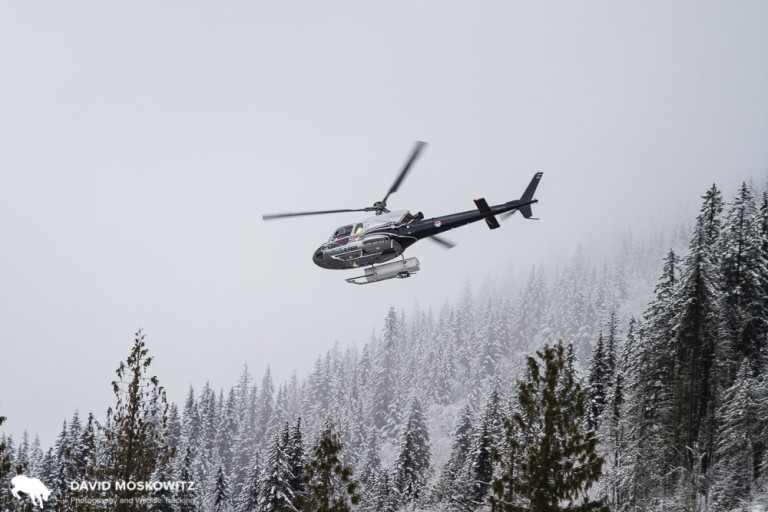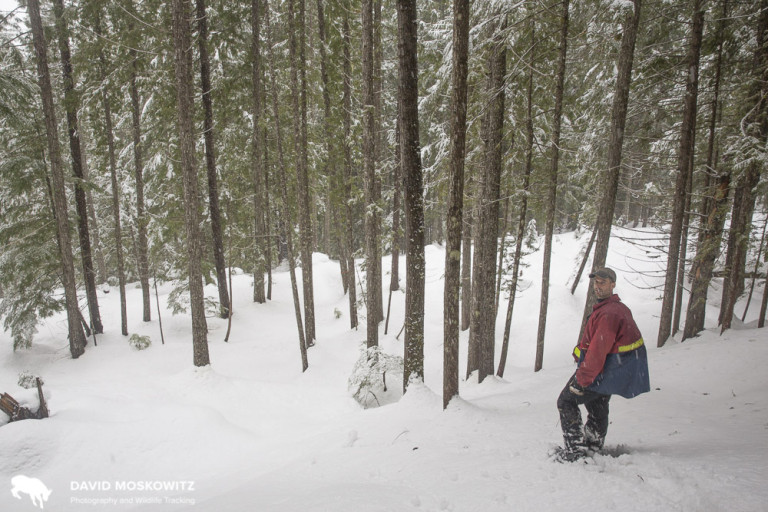What is conservation? A View Into the Human Economy in the Heart of Mountain Caribou Country
Revelstoke is a small city in the heart of the Columbia Mountains, about an hour west of Rogers Pass on the Trans Canada Highway. During my recent stay in Revelstoke, British Columbia, the most thoughtful description of the economy was shared with me by Michael Copperthwaite, the General Manager of the Revelstoke Community Forest Corporation. He described it as a resource extraction town with a veneer of ecotourism. A few days in town will confirm that both of these industries have a strong presence in the community. You can watch log trucks, loaded with old growth cedar, roll by to the mill on the south end of town, while stop by one of several excellent coffee shops before your hike, climb, ski, or mountain bike ride. Your helicopter flight to a day of heli-skiing might take you over the hydropower dam on the Columbia River, 5 minutes outside of town. Your day of lift access skiing at the local resort will provide you outstanding views of mountainsides oddly decorated with a patchwork of clearcuts, spreading out in every direction around town. There are two national parks right outside of town, one of which is bisected by the Trans Canada Highway, Canada's most important ground transportation route.
Every inch of this landscape is traditional habitat for mountain caribou. Revelstoke is in the heart of inland temperate rainforest and, as any visitor will tell you, is very, very wet. Caribou here exhibit the double migration pattern typical of the 'mountain' ecotype: spending a chunk of the spring and fall in the valley bottoms, and the summer and winter at high elevations. The two caribou herds in the region are fairing quite differently. The Columbia South herd is heading quickly towards extirpation, with the province listing only 5 animals and having no plans to augment the herd. The Columbia North herd has been the focus of a great deal of attention, and by most estimates its size has “stabilized” with well over 100 animals. The general consensus is that its prospects are better than most.
During 2 weeks in town this winter, I interviewed and/or spent time in the field with folks working in the local timber economy, members of the local Revelstoke Snowmobile Club, and several folks involved in the heli-ski industry. I also met with the Board of Directors for the non-profit Revelstoke Caribou Rearing in the Wild project which is spearheading the experimental program north of Revelstoke to hold pregnant caribou in pens for the period before and after they give birth to protect the cows and calves from predators during the calving season. This project has received the wide support of just about every element of the local community and has served as an opportunity for collaboration and relationship building between various segments of the community who are traditionally at odds with each other.
Daniel Kellie (left), owner of Great Canadian Snowmobile Tours and president of the Revelstoke Snowmobile Club, and club members Ron LaRoy (center), and Brad McStay lean on the front of one of the clubs groomers used to maintain the network of snowmobile trails the club manages all winter. Daniel noted that interest in snowmobiling in the Revelstoke area is growing, adding pressure to the areas currently easily accessible and legally open to to snowmobiling, a number of which have known mountain caribou populations.
Kevin Bollefer, the operations forester for the Revelstoke Community Forest Corporation snowshoeing through one of the stands the corporation has recently harvested in. Kevin and the Community Forest are working on ways to carry out economically viable timber harvest which minimize impacts on caribou. He explained that this is easier to do in locations with high value timber. Locations where the value of the trees is less means that clearcuts are often the only viable option for logging, a result of a combination of market forces and British Columbia’s forest management regime.
Another point that everyone agrees on is that the economy of this community is intimately tied to the natural resources that surround it, from the power of the Columbia River to the deep powder of the numerous mountain ranges. And everyone also understands that, economically, while things are well now, there are problems on the horizon that will need to be reckoned with. As Ian Tomm, Executive Director of the Heli-Cat Canada Association put it, in regards to the heli-ski industry specifically, “Everyone in this industry is pro-conservation. The trouble is in the details of what is conservation.” What is conservation? Each interest group I met with had their own ideas about the problems and potential solutions. Caribou conservation efforts have changed business as usual for everyone in this community, and for the most part everyone is looking forward and attempting to find ways to pro-actively adapt to the changing ecological and business climate.
Over the months to come myself and my collaborators will be returning to the area to collect more material for this story, and to learn more about the ecological interactions between mountains, rainforest, caribou, and humans in this stunning and confusing corner of mountain caribou country.










